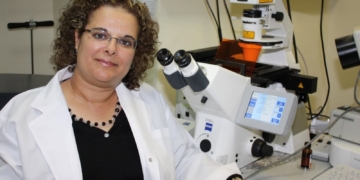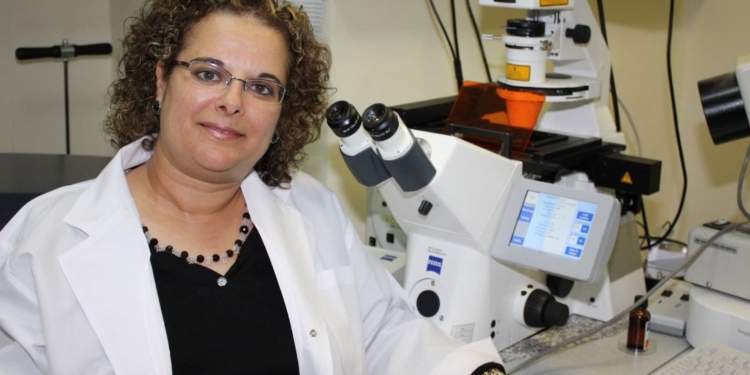
 Prof. Mira Barda-Saad from the Goodman Faculty of Life Sciences, Bar Ilan University. BIU
Prof. Mira Barda-Saad from the Goodman Faculty of Life Sciences, Bar Ilan University. BIU
According to the researchers, NK cell dysfunction occurs in two ways. The first is during the “training process” in the immune system. If this process is disrupted and they receive inappropriate signals, it can lead to “anergic” NK cells that don’t function correctly.
The second is in the tumor microenvironment. When NK cells encounter a tumor, they are constantly stimulated. If this stimulation is excessive and prolonged, it can lead to exhaustion where the NK cells become less effective at fighting cancer.
Barda-Saad’s group analyzed anergic and exhausted NK cells from both their training phase and tumor microenvironment, and found that they are similarly dysfunctional. They identified two key factors contributing to this dysfunction: the enzyme DGK alpha and the transcription factor Egr2.
“Experiments in three-dimensional tissue culture and in-vivo mice models have shown that nanoparticles, acting as a platform for drug delivery, can reprogram the dysfunctional natural killer cell population,” said Barda-Saad.
“After the research group introduced nanoparticles that silence the two negative regulators, the killer cells returned to their normal function and efficiently killed cancer cells.”
These promising findings, obtained in animal models bearing aggressive pancreatic cancer, could pave the way for the development of effective treatments against solid tumors using an immunotherapeutic strategy, offering hope to patients and professionals in the field.
Produced in association with ISRAEL21c

























